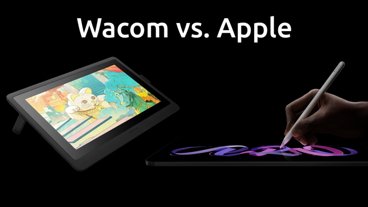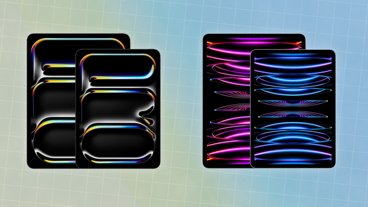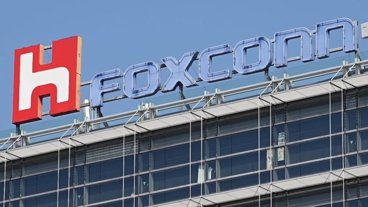Apple makes supply chain substance regulations public, to create advisory board for safe chemical use
Apple's new regulations for benzene and n-hexane, two chemicals recently banned from supply chain use.Source: Apple Regulated Substances Specifications

Following a decision to ban benzene and n-hexane from use in supplier factories, Apple for the first time made its Regulated Substances Specifications — supply chain restrictions for hazardous/toxic materials — available for public viewing for the first time.
Along with the list of regulations (PDF link), Apple VP of Environmental Initiatives Lisa Jackson on Thursday posted a letter online regarding the company's stance on safe working environments.
"Eliminating the risks from toxic substances in the products we all use has always been a passion of mine, and today it is one of our top three environmental priorities here at Apple," Jackson writes. "We continue to lead the industry in this area as we are committed to keeping both people and the environment healthy. That's why we've removed many harmful substances from our product designs and go to great lengths to make sure they stay that way."
Apple's environmental chief goes on to list a few examples of safely-made product designs, like PVC-free power cords and mercury-free displays, saying the company will continue to invest in innovative materials and manufacturing processes.
Further, Apple intends to create a new advisory board made up of chemical and pollution prevention experts who will be tasked with finding ways to minimize or eliminate toxins from the tech giant's supply chain. Meetings with stakeholders are also being planned to "seek out the best science, data, and solutions," Jackson says.
Earlier today, it was reported that Apple removed two chemicals — benzene and n-hexane — from its list of substances approved for use by partner manufacturers responsible for the final stages of iPhone production. The move came some five months after a petition by activist groups China Labor Watch and Green America called for the company to place a ban on the potentially dangerous substances.
Jackson addresses the claims directly in her letter, pointing out that Apple launched an investigation and sent out specialized research teams to inspect all 22 of its suppliers' final assembly factories. Although no health risks were found, the company decided to tighten restrictions on benzene and n-hexane, prohibiting their use in "final assembly processes."
"We're committed to removing toxins from our products and processes. Because everyone has the right to a safe product and a safe working environment," Jackson writes.
 Mikey Campbell
Mikey Campbell












 Malcolm Owen
Malcolm Owen

 Amber Neely
Amber Neely

 Marko Zivkovic
Marko Zivkovic
 David Schloss
David Schloss
 Wesley Hilliard
Wesley Hilliard
 Mike Wuerthele and Malcolm Owen
Mike Wuerthele and Malcolm Owen









18 Comments
Now show me another electronics company that makes data like this publicly available in the tech / electronics sector? GO APPLE! 8-)
Now Apple's discriminating against chemical formulas?! Pathetic¡
"Apple for the first time made its specifications available for the first time." And all that, for the first time.
Now show me another electronics company that makes data like this publicly available in the tech / electronics sector?
GO APPLE!
Of course, "all final assembly processes" is very late in the manufacturing, and "breathing zone" sounds like operators can be exposed nonetheless (skin, for example). Obviously, Apple is doing more than anyone else, but we're still very far from putting humans first. At least Apple will force manufacturers to take this point into account. Go Apple, indeed!
While I'm at it, am I the only person here to think that the Tim Cook text stating he's not happy with diversity numbers Apple disclosed make little sense? I mean:
- he's the boss, he can hire who he pleases, so why would he not just hire more people to change the numbers if they "displease him".
- there is no comparison number available regarding the diversity in births in the USA, so how can we conclude anything? I'm not American so I have not much of a clue of the numbers here, but I guess most people here know better?
I mean, if there is, say, 10% white people in the USA and 50% white people in Apple, then the diversity numbers are bad. If there is 80% white people in the USA, and 50% in Apple, then Apple is actually biased against white people, which is just as bad. Replace white with gay/jew/bisexual/blind/deaf or whatever Human Resources might be discriminating against/for, point is the same: what's the comparison information? I might be a data freak, but hey, sounds like being in a valid minority to me ^^
- Besides, shouldn't a company prove that they hired the best person for a given job among the applicants, rather than prove they have a given rate of hires? I thought there was some requirement for companies to try and perform as good as possible for their investors in the USA, and these diversity rules seem to conflict with that requirement by forcing the company to hire second-best people if their diversity origin is more appropriate? I mean by that, if the person hired is always the best, then mathematically the HR can't discriminate based on their personal issues, because they did not hire based on discrimination, but on who's the best? Maybe I'm just naive ^^
Will the bring-manufacturing-back-to-America have an effect on those exposure-to-chemicals rules? A highly roboticized plant like the Mac Pro's doesn't expose many operators to any solvent anyway.
Curious what you people think of all this ^^
[quote name="lightknight" url="/t/181824/apple-makes-supply-chain-substance-regulations-public-to-create-advisory-board-for-safe-chemical-use#post_2578964"]While I'm at it, am I the only person here to think that the Tim Cook text stating he's not happy with diversity numbers Apple disclosed make little sense?[/quote] No, you’re not the only one. Lots of people got a bee in their bonnet about that one. I did not partake in the thread dedicated to that piece of news as so many people seemed to be (deliberately or not, I’m not sure) misunderstanding what is going on. Those who were upset about the issue were assuming that it meant that Apple hires based on race/religion/orientation etc. etc. in order to meet diversity targets, rather than hiring the best candidate for the job. I do not believe that this is the case, because as you say: [quote name="lightknight" url="/t/181824/apple-makes-supply-chain-substance-regulations-public-to-create-advisory-board-for-safe-chemical-use#post_2578964"]- he's the boss, he can hire who he pleases, so why would he not just hire more people to change the numbers if they "displease him”.[/quote] No, this is not what Tim Cook wants to do. If you are hiring the best people for the job, and then you look at the diversity in your organisation and you’re not happy with it, the appropriate way to fix the problem is to ensure that all those races/religions/etc. etc. who appear to be underrepresented are being afforded equal opportunity to be the best. It is almost certainly not Apple’s fault directly that their diversity is not where they want it to be, but they can help with things like bursaries for educational scholarships etc.